Universal credit reduction: 'What the end of £20 top-up means to me'
- Published
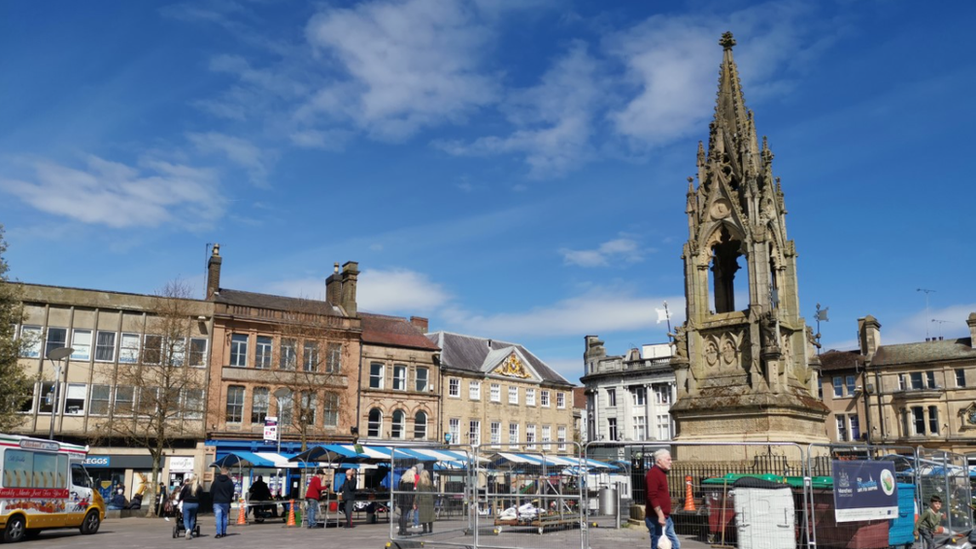
Some people in Mansfield felt the reduction would make a big difference, while others said it had been "a bonus"
During the Covid pandemic, people on low incomes found their universal credit (UC) was boosted by £20 a week.
But the top-up has now been withdrawn - amid criticism from charities and MPs.
The government has said the £20 uplift was always meant to be temporary and that people getting back into work is the best way to tackle poverty.
But how are the cuts likely to affect people's lives? BBC News asked people in Mansfield, Nottinghamshire, for their views.
Kerry Choudhury, 28, a part-time teaching assistant and mother of three, said she had only been on UC for a couple of months.
"I'm hoping it doesn't affect the children too much," she said.
She added the reduction would make "a big difference".
"It's the difference between being able to put extra food on the table or take the children out," she said.
"It just means I need to be tighter with the food budget. We need to ensure the children are fed.
"Any luxuries will just have to stop. [I won't be] able to give the children an extra snack in their box, like a cereal bar. They will have to stick to their dinners.
"It's just about managing and budgeting a little more.
"Having that extra £20 meant we didn't have to worry as much but now we will have to."

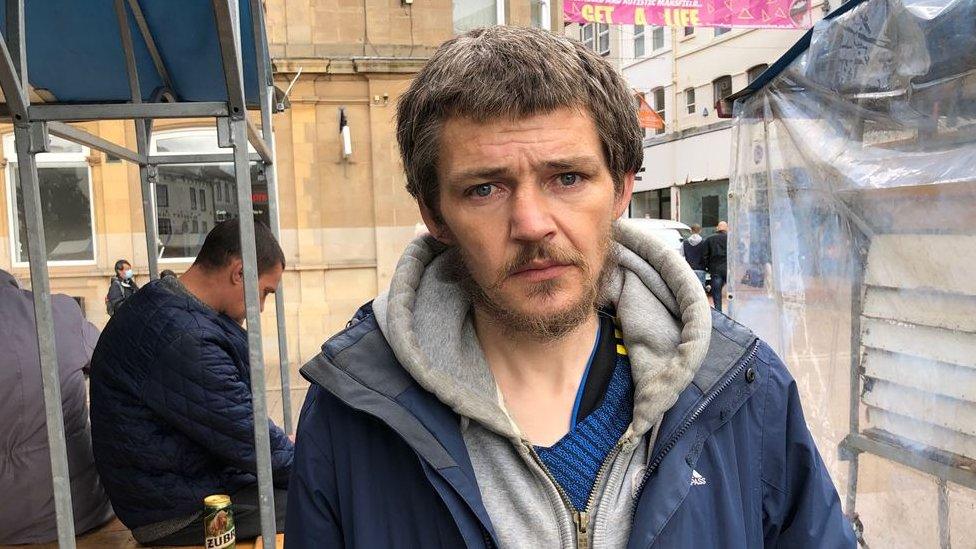
Martin Staniland said he would stop smoking and start using food banks following the changes
Martin Staniland, 24, said the reduction would have a "dramatic effect".
"I'm going to have to start going to the food banks again, just because of the changes," he said.
"I'm not particularly good at budgeting. That £20 a week makes a hell of a lot of difference.
"It's ridiculous - I don't think it should happen. I'm going to have to cut down on a lot of things, just to put food in my mouth and clothes on my back.
"I'm a smoker - I'm going to have to stop smoking. I'm very worried because it's affecting me and a lot of people in this town. There's going to be a lot more people going to food banks."

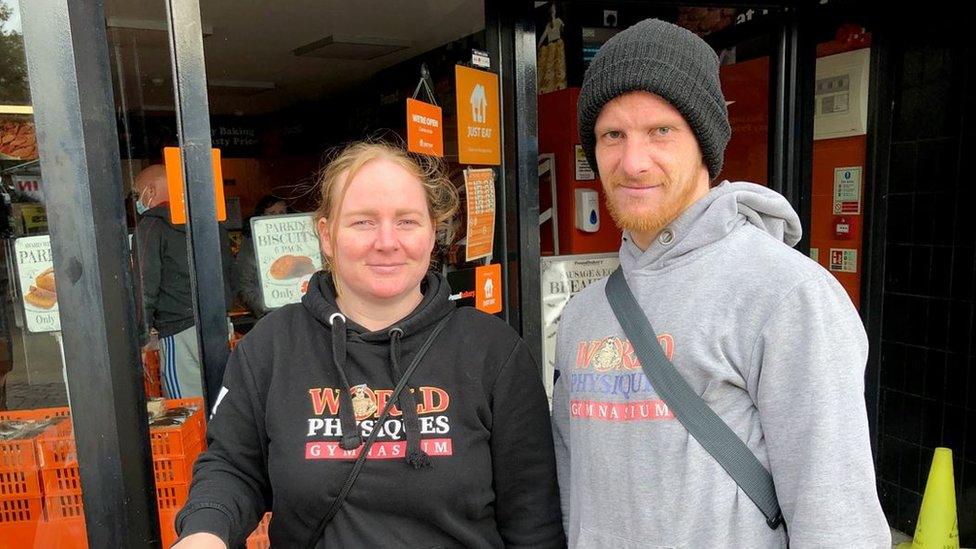
Terrie and Andy Merrills said the payment had been a bonus during the pandemic
Terrie Merrills, 34, said she had regarded the extra money during the pandemic as "a bit of a bonus".
"Basically, it's back to how we had it before," she said.
"Obviously during the pandemic, they gave us a bit of extra money.
"My husband works, so it's only when you rely on it, it's going to affect you."
Her husband Andy, 35, added: "Universal credit only works for people who actually want to work.
"People that don't want to work, it won't work for them."

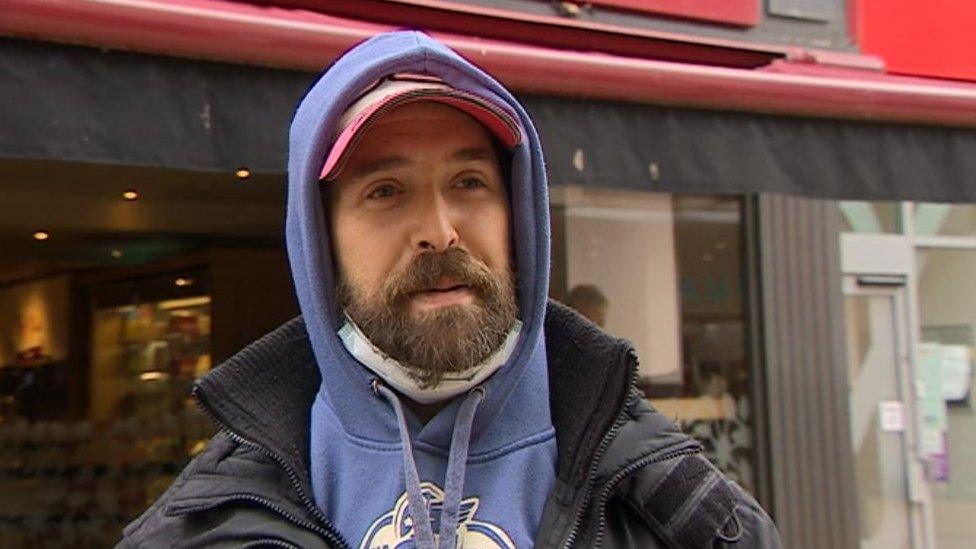
Nathan Wood said he felt angry about the reduction
Nathan Wood, 36, said he would have to give up "heating or eating" as a result of the reduction.
"I'll struggle," he said. "If I get cold, I'll just have to put a blanket round me.
"What else can I do? It's their decision and you've just got to go with it.
"It's a lot of money. I didn't think they'd do it. Once they'd given it to you, I didn't think they'd be able to take it off you but obviously they have.
"I am angry but what can I do?"

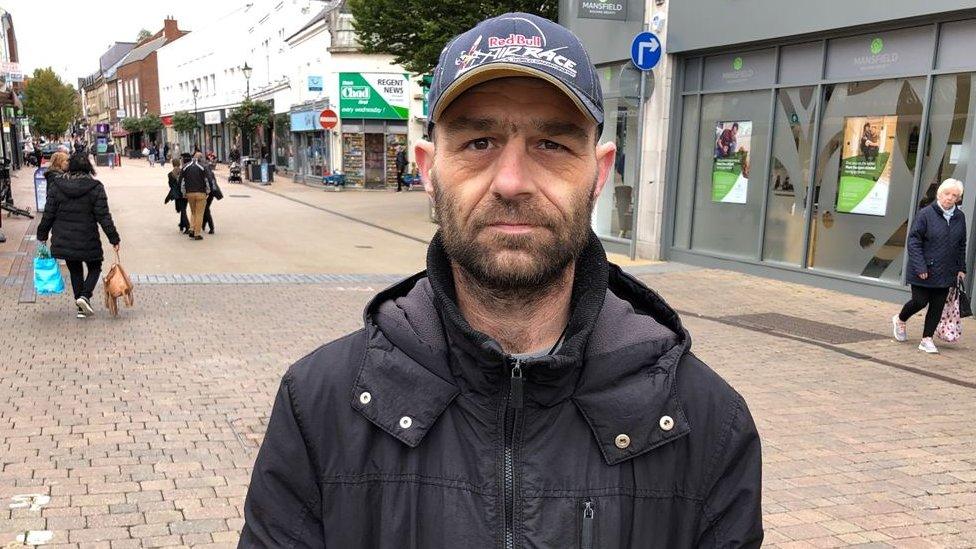
Dean Richardson said the extra £20 had gone towards his rent
Dean Richardson, 43, said the reductions would make "a big, big difference" to his life.
"I don't know how I'm going to cope. There are no jobs round here at all," he said.
"I used to be a cleaner but I'm unemployed now."
He said the extra £20 a week had gone towards his rent.
"Obviously I'll have to look at other ways of working my rent out," he said.
"I'm going to cut back on my food and my heating.
"I'm worried about it. My job centre work coach is going to explain where I can save money but I don't think I'm going to make ends meet."

A government spokesman said: "We've always been clear that the uplift to UC was temporary.
"It was designed to help claimants through the economic shock and financial disruption of the toughest stages of the pandemic, and it has done so.
"UC will continue to provide vital support for those both in and out of work and it's right that the government should focus on our Plan for Jobs, supporting people back into work and supporting those already employed to progress and earn more."

Follow BBC East Midlands on Facebook, external, Twitter, external, or Instagram, external. Send your story ideas to eastmidsnews@bbc.co.uk, external.
- Published13 May 2024
